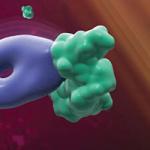
Mark Knepper, M.D., Ph.D.
Senior Investigator
Epithelial Systems Biology Laboratory (ESBL)
NHLBI
Research Topics
The Epithelial Systems Biology Laboratory (ESBL), headed by Mark Knepper, MD, PhD, exploits a unique combination of high-level experimental and computational methodologies to produce research on mechanisms of disease that could not be readily done outside of the NIH Intramural Program. A central element of Dr. Knepper’s research portfolio is a project designed to identify every gene expressed in every epithelial cell type of the kidney using modern transcriptomic and proteomic techniques. Importantly, the resulting data sets are freely shared with the research community on an NHLBI Intramural web server (https://esbl.nhlbi.nih.gov/Databases/KSBP2/) and have been utilized by kidney researchers throughout the United States and the World in studies aimed at reducing the burden of kidney disease. A second important element of Dr. Knepper’s work aims to understand the mechanisms underlying diabetes insipidus. There is special emphasis on diabetes insipidus due to the toxicity of lithium, which is widely used to treat patients with psychiatric depression, but also is increasing as an environmental toxin as a result of a meteoric increase in demand for lithium batteries. Dr. Knepper and his team have shown that lithium interferes with the processes important to the ability of the kidneys to conserve water. It also shows that lithium causes the collecting duct cells of the kidney to produce chemokines, which induce kidney infiltration of inflammatory cells resulting in chronic inflammation and chronic kidney disease. A third important element of Dr. Knepper’s research is designed to understand syndromes associated with excess water retention by the kidneys (congestive heart failure, hepatic cirrhosis, cancer-associated excess of the antidiuretic hormone vasopressin). All told, these water retention syndromes are seen quite frequently in hospitalized patients, manifested as dilutional hyponatremia (low blood sodium concentration). Dr. Knepper and his team carry out advanced studies to identify the molecular mechanisms by which the collecting ducts of the kidney are induced to reabsorb excess water, usually in response to increased levels of vasopressin. Extensive studies by the Knepper Lab have shown that the water retention is associated with an overabundance of the water channel protein, aquaporin-2, and current studies are aimed at an understanding of factors that cause excess transcription of the gene that codes for aquaporin-2, with the goal of developing effective, cost-efficient therapies.
Biography
Mark Knepper received a B.S. in chemical engineering from the University of Michigan, a Ph.D. in biomedical engineering and an M.D. from Case Western Reserve University (CWRU), and has an honorary Ph.D. from the University of Aarhus in Denmark. He is currently head of the Epithelial Systems Biology Laboratory at the NHLBI. He has published over 500 peer-reviewed papers on hypertension, kidney disease, kidney physiology, and systems biology. Most recently, he has done innovative work on molecular mechanisms of common water balance disorders, viz. diabetes insipidus and dilutional hyponatremia, as well as work on renal compensation for nephron loss in chronic kidney disease. His work has produced computational tools and extensive sets of proteomic and transcriptomic data that are widely used by kidney researchers throughout the US and the world. Dr. Knepper has received the H.W. Smith Award (the highest basic research award of the American Society of Nephrology), the R.W. Berliner Award at Yale University, the C.W. Gottschalk Award of the American Physiological Society, the Hugh Davson Lectureship of the American Physiological Society, and the D.W. Seldin Lectureship of the American Heart Association (Council on the Kidney in Cardiovascular Disease). He has served as Deputy Editor of the Journal of the American Society of Nephrology and editorial positions for the American Journal of Physiology and the Journal of Clinical Investigation.
Selected Publications
- Knepper MA, Kwon TH, Nielsen S. Molecular physiology of water balance. N Engl J Med. 2015;372(14):1349-58.
- Sung CC, Chen L, Limbutara K, Jung HJ, Gilmer GG, Yang CR, Lin SH, Khositseth S, Chou CL, Knepper MA. RNA-Seq and protein mass spectrometry in microdissected kidney tubules reveal signaling processes initiating lithium-induced nephrogenic diabetes insipidus. Kidney Int. 2019;96(2):363-377.
- Chen L, Chou CL, Knepper MA. A Comprehensive Map of mRNAs and Their Isoforms across All 14 Renal Tubule Segments of Mouse. J Am Soc Nephrol. 2021;32(4):897-912.
- Kikuchi H, Chou CL, Yang CR, Chen L, Jung HJ, Park E, Limbutara K, Carter B, Yang ZH, Kun JF, Remaley AT, Knepper MA. Signaling mechanisms in renal compensatory hypertrophy revealed by multi-omics. Nat Commun. 2023;14(1):3481.
- Isobe K, Jung HJ, Yang CR, Claxton J, Sandoval P, Burg MB, Raghuram V, Knepper MA. Systems-level identification of PKA-dependent signaling in epithelial cells. Proc Natl Acad Sci U S A. 2017;114(42):E8875-E8884.
Related Scientific Focus Areas

Biomedical Engineering and Biophysics
View additional Principal Investigators in Biomedical Engineering and Biophysics




This page was last updated on Thursday, August 21, 2025